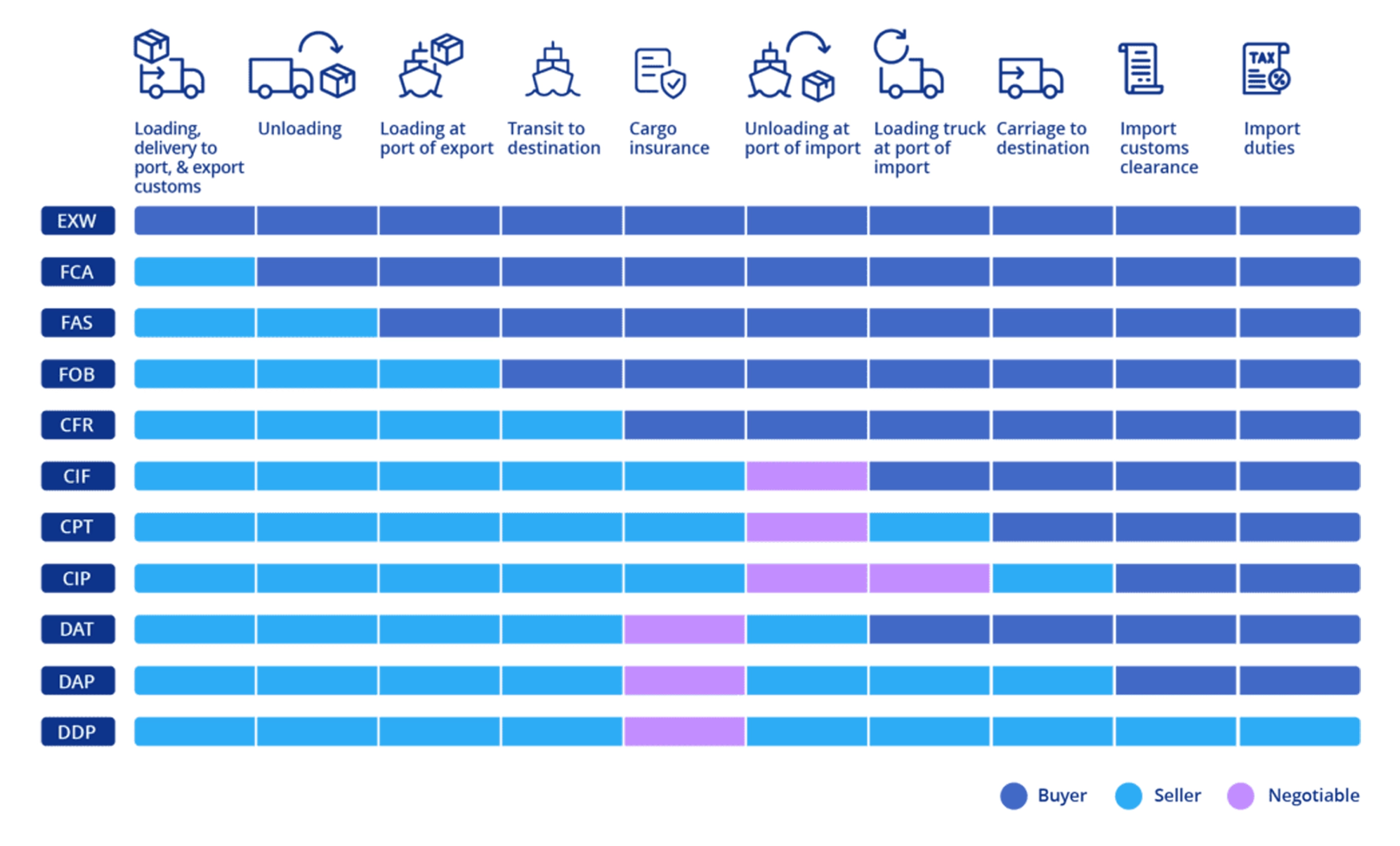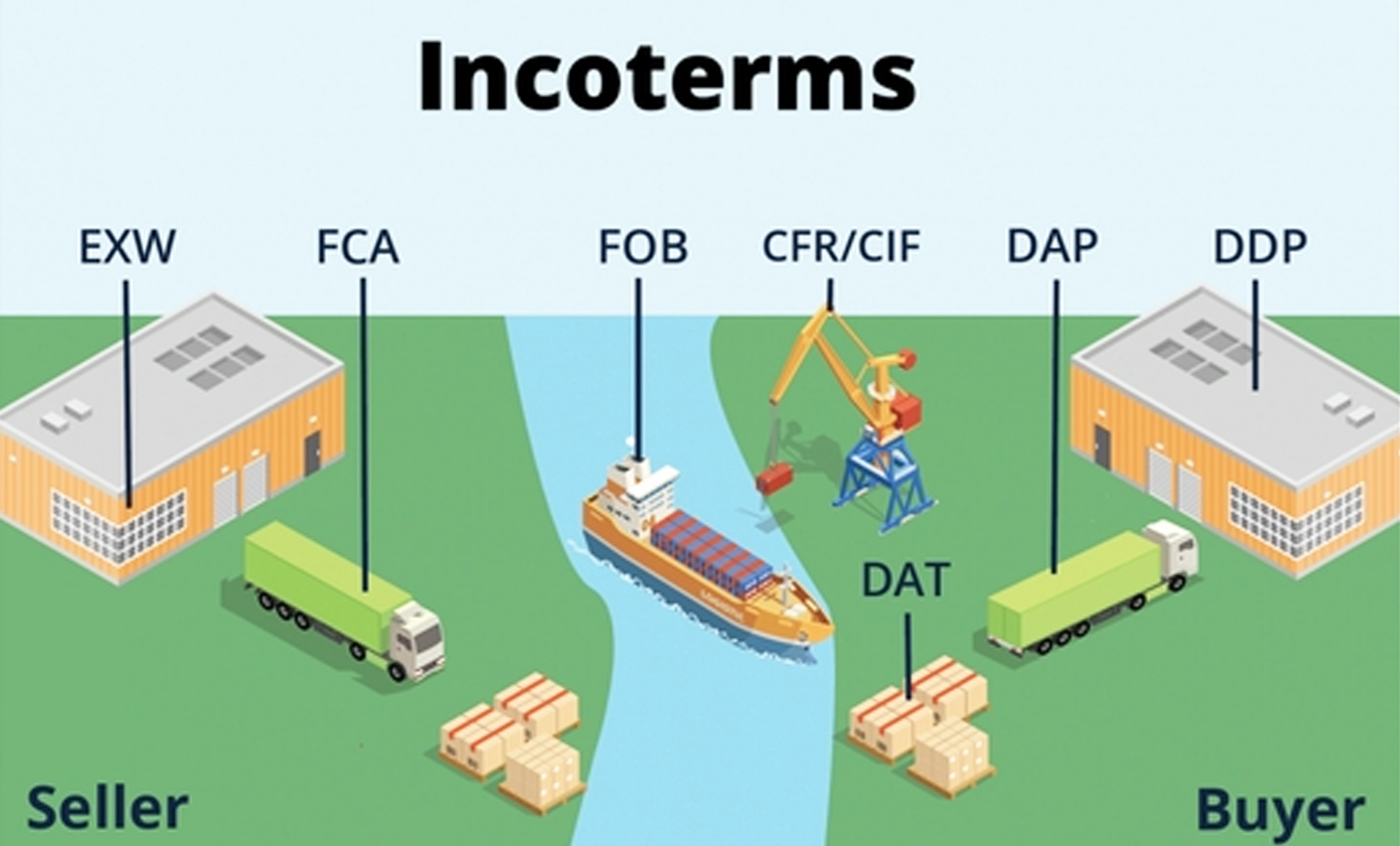 March 10, 2024 - BY Admin
March 10, 2024 - BY Admin
In the complex world of international trade, where goods are transported across borders and continents, the use of standardized trade terms becomes essential to facilitate smooth and efficient transactions. Among the most widely recognized and utilized set of trade terms are the Inco Terms, short for International Commercial Terms. These terms, established by the International Chamber of Commerce (ICC), serve as a universal language for buyers and sellers to define their respective obligations, risks, and costs throughout the shipping process.
A Comprehensive Look at Commonly Used Inco Terms:
EXW (Ex Works): This term places the least responsibility on the seller, who is only required to make the goods available for pickup at their premises. The buyer assumes all costs and risks associated with transportation, insurance, and export/import formalities from the seller's location to the final destination.
FCA (Free Carrier): Under FCA, the seller is responsible for delivering the goods, cleared for export, to the carrier nominated by the buyer at a specified location. Once the goods are handed over to the carrier, the risk transfers to the buyer, who assumes responsibility for transportation, insurance, and import clearance.
CPT (Carriage Paid To): Under CPT terms, the seller is responsible for arranging and paying for transportation to deliver the goods to a named destination. Once the goods are handed over to the carrier, the risk transfers to the buyer.
CIP (Carriage and Insurance Paid To): Similar to CPT, CIP terms require the seller to arrange and pay for transportation and insurance to deliver the goods to a named destination. The seller is responsible for export clearance, and the risk transfers to the buyer upon delivery to the carrier.
DAT (Delivered at Terminal): With DAT terms, the seller delivers the goods to a named terminal at the destination port or place. The seller is responsible for import clearance and assumes all risks until the goods are unloaded at the terminal.

DAP (Delivered at Place): Under DAP terms, the seller delivers the goods to a named destination agreed upon by both parties. The seller bears all risks and costs associated with transportation and delivery to the agreed-upon place of destination.
DDP (Delivered Duty Paid): DDP terms place maximum responsibility on the seller, who is responsible for delivering the goods to the buyer's premises at the destination, including import clearance and payment of any applicable duties and taxes.
FAS (Free Alongside Ship): FAS terms require the seller to deliver the goods alongside the vessel at the named port of shipment. The buyer is responsible for loading the goods onto the vessel, and the risk transfers to the buyer once the goods are placed alongside the ship.
FOB (Free on Board): With FOB terms, the seller is responsible for delivering the goods on board the vessel at the named port of shipment. The buyer assumes responsibility for transportation, insurance, and risk once the goods are on board the vessel.
CFR (Cost and Freight): Under CFR terms, the seller is responsible for arranging and paying for transportation to deliver the goods to the named port of destination. The seller also bears the risk until the goods are loaded onto the vessel.
CIF (Cost, Insurance, and Freight): CIF terms are similar to CFR, but the seller is also responsible for procuring marine insurance to cover the goods during transportation to the named port of destination. The risk transfers to the buyer once the goods are loaded onto the vessel.